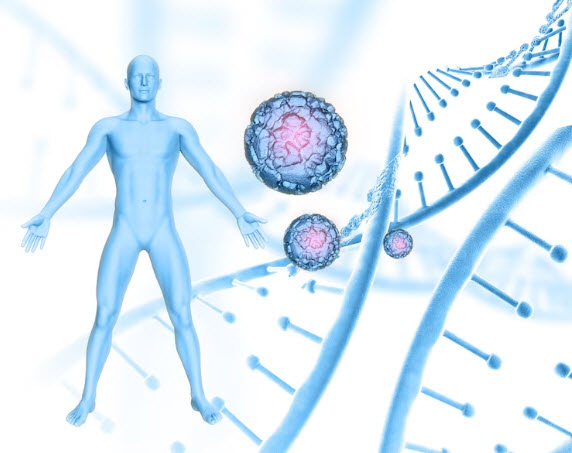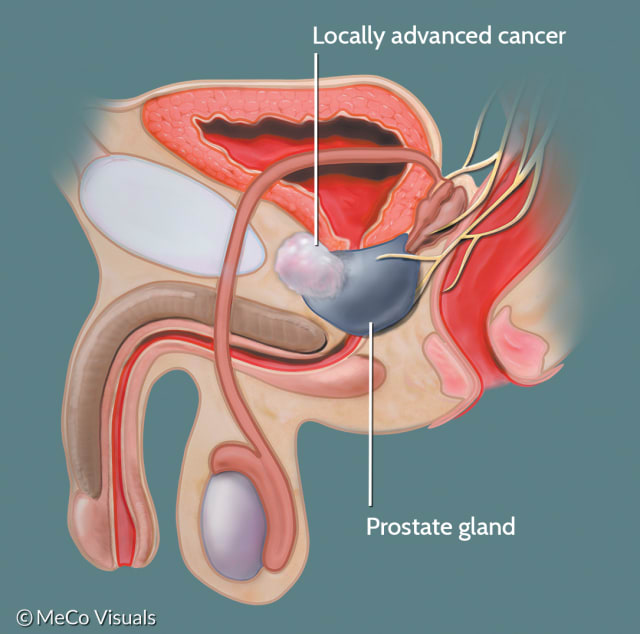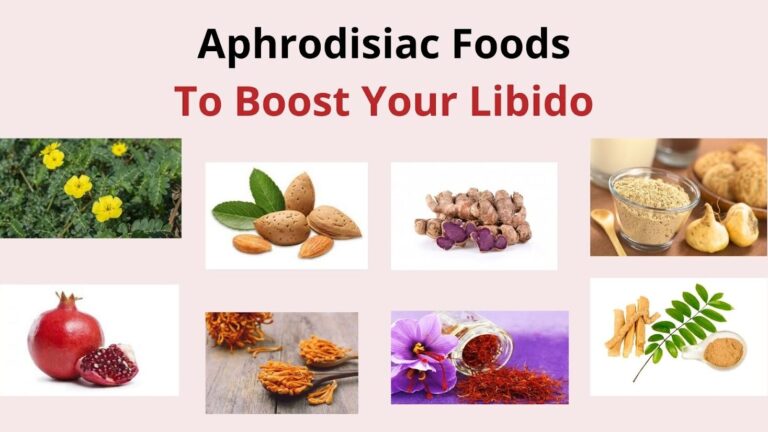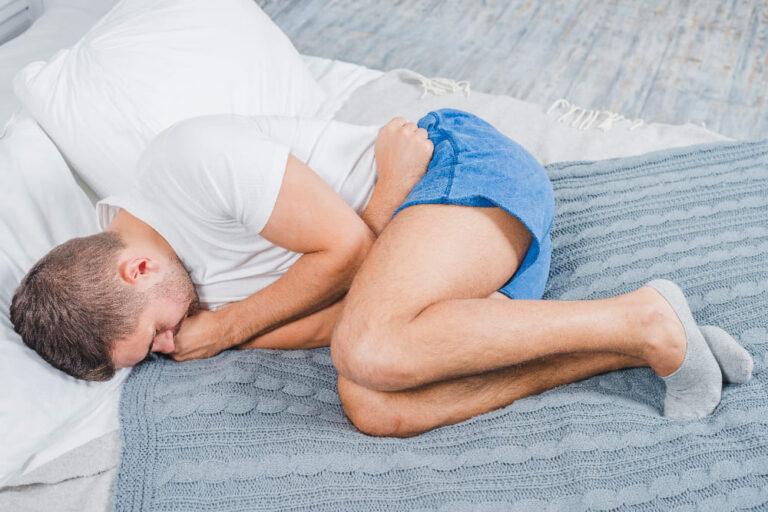Testosterone and Sex Drive: How They Influence Each Other and What to Do About It

Understanding the Relationship between Hormones and Libido

Hormones play a crucial role in regulating libido, which refers to an individual’s sexual desire. Both men and women experience fluctuations in hormones throughout their lifetime, influencing their sexual drive. Testosterone is the primary hormone responsible for sexual desire in both males and females, although its levels are relatively higher in men.
In men, testosterone is produced primarily in the testicles, while in women, it is synthesized in the ovaries and adrenal glands. Testosterone levels typically peak during adolescence and early adulthood and gradually decline with age. However, several factors can affect testosterone levels, including lifestyle habits, stress, diet, exercise, and sleep patterns. Understanding the relationship between hormones, like testosterone, and libido is crucial for maintaining a healthy and fulfilling sexual life.
Acknowledging the influence of hormones on libido can help individuals recognize potential imbalances and take appropriate steps to address them. By comprehending the importance of balanced hormones, individuals can make informed decisions regarding their lifestyle choices, such as exercise, diet, and managing stress levels. Moreover, seeking professional help from medical experts can provide further guidance in overcoming challenges related to hormonal imbalances and low libido.
The Role of Testosterone in Sexual Desire

Testosterone, a hormone primarily associated with male characteristics, plays a crucial role in sexual desire for both men and women. It acts as a key driver in regulating libido and is responsible for initiating the sexual response cycle. In men, testosterone influences the development of reproductive organs, sperm production, and sexual function. It also contributes to the maintenance of muscle mass, bone density, and overall vitality.
Research has shown that testosterone levels fluctuate throughout the day, with the highest levels occurring in the morning and gradually decreasing throughout the day. This hormonal fluctuation can influence sexual desire by affecting neurotransmitters and receptors involved in the regulation of sexual arousal. It is important to note that while testosterone is a key component, sexual desire is a complex interplay of various factors including psychological, emotional, and environmental influences. Therefore, maintaining optimal testosterone levels alone may not guarantee a healthy libido.
In conclusion, understanding the role of testosterone in sexual desire is crucial for establishing a comprehensive approach to addressing issues related to libido. While testosterone does contribute significantly, it is essential to consider other factors that may affect sexual desire. By taking a holistic approach that includes lifestyle adjustments, dietary choices, and stress management techniques, it is possible to achieve a balanced hormonal profile that positively impacts sexual desire and overall well-being.
Factors Affecting Testosterone Levels in Men

Low testosterone levels in men can be influenced by a variety of factors. One of the key factors is age. As men age, their testosterone levels naturally decline. Studies have shown that testosterone levels begin to decrease by about 1% per year after the age of 30. This gradual decline can result in decreased sexual desire and other symptoms associated with low testosterone.
Another factor that can affect testosterone levels in men is obesity. Research has found that excess body fat can lead to lower testosterone levels. Fat cells convert testosterone into estrogen, leading to a decrease in overall testosterone levels. Maintaining a healthy weight through regular exercise and a balanced diet can help optimize testosterone production.
Furthermore, chronic stress can also impact testosterone levels in men. When the body is under stress, it produces cortisol, a hormone that can suppress testosterone production. Long-term stress can lead to persistently elevated cortisol levels, which can contribute to low testosterone levels. Implementing stress management techniques such as exercise, meditation, and adequate sleep can help reduce cortisol levels and support healthy testosterone production.
How Testosterone Impacts Female Sex Drive
Testosterone is often associated with male sexuality, but it also plays a crucial role in female sexual desire. While women naturally produce lower levels of testosterone than men, it still plays a significant role in regulating their libido. Research has shown that testosterone levels can directly impact a woman’s sex drive, with low levels potentially leading to a decrease in sexual desire.
Testosterone is responsible for initiating and maintaining sexual desire in both men and women. It plays a role in activating the brain’s pleasure centers and increases sensitivity to sexual stimuli. When testosterone levels are low, women may experience a reduced interest in sex and diminished satisfaction during sexual activities. It is worth noting that testosterone alone is not the sole determinant of female sexual desire, as other factors such as emotional intimacy, relationship dynamics, and overall health also contribute to a woman’s sexual well-being.
While the relationship between testosterone and female sex drive is complex, it is important to note that hormonal balance is key. If you suspect that low testosterone levels may be affecting your libido, consider discussing your concerns with a healthcare professional. They can conduct hormone tests and provide guidance on potential treatment options to help restore a healthy hormone balance and improve your sexual desire. Remember, open communication and seeking professional help are crucial steps towards maintaining a healthy sex drive.
| Testosterone Impact | Description | Credible Source |
|---|---|---|
| Increased Libido | Testosterone is associated with sexual desire, and higher levels may contribute to an increased sex drive in some women. | PubMed |
| Enhanced Arousal | Testosterone can play a role in enhancing sexual arousal and responsiveness. | Google Scholar |
| Improved Mood | Higher levels of testosterone may positively impact mood and overall well-being, indirectly influencing sexual desire. | PubMed |
| Increased Sensitivity to Sexual Stimuli | Testosterone may contribute to heightened sensitivity to sexual stimuli, potentially intensifying sexual experiences. | Google Scholar |
| Enhanced Confidence | Some studies suggest that testosterone may be linked to increased confidence, which can positively impact sexual desire and satisfaction. | PubMed |
| Improved Energy Levels | Testosterone has been associated with increased energy levels, contributing to a more active and fulfilling sex life. | Google Scholar |
The Importance of Balanced Hormones for a Healthy Libido
A healthy libido is essential for a fulfilling and satisfying sex life. And one crucial factor that plays a significant role in maintaining a healthy libido is balanced hormones. Hormones are chemical messengers that regulate various bodily functions, including sexual desire. When our hormones are in harmony, our libido tends to be more robust and consistent.
Balanced hormones are particularly important for both men and women regarding sexual desire. In men, testosterone is the primary hormone responsible for sex drive, while women have a more complex interplay of estrogen, progesterone, and testosterone influencing their libido. When these hormones are in balance, individuals tend to experience a more consistent and satisfying level of sexual desire. On the other hand, imbalances in hormone levels can lead to a decline in libido, causing frustration and dissatisfaction. Therefore, maintaining balanced hormones is crucial for a healthy and vibrant sex life.
Lifestyle Habits that Can Boost Testosterone and Enhance Sex Drive
One of the most effective ways to naturally boost testosterone levels and enhance sex drive is by incorporating certain lifestyle habits into your daily routine. Regular exercise, for instance, has been shown to have a positive impact on testosterone production. Engaging in both aerobic exercises, such as running or swimming, and strength training exercises, like weightlifting, can help stimulate the release of testosterone in the body.
In addition to exercise, getting enough quality sleep is crucial for maintaining optimal hormonal balance and a healthy libido. Research has linked sleep deprivation and poor sleep quality with lower testosterone levels in both men and women. Aim to prioritize sleep and establish a consistent bedtime routine to improve your overall well-being and sexual desire.
The Link between Stress and Testosterone Levels
Stress can have a significant impact on testosterone levels in both men and women. When we experience stress, our bodies release cortisol, also known as the stress hormone. High levels of cortisol can suppress the production of testosterone, leading to a decrease in libido and sexual desire.
Research has shown that chronic stress can have long-term effects on hormone balance, including testosterone levels. A study published in the journal Psychosomatic Medicine found that men who reported high levels of chronic stress had lower testosterone levels compared to men experiencing lower levels of stress. Similarly, a study conducted on women found that psychological stress was associated with reduced testosterone levels, ultimately affecting sexual desire.
It is important to manage and reduce stress levels in order to maintain healthy testosterone levels and a healthy libido. Engaging in stress-reducing activities such as meditation, deep breathing exercises, and regular physical activity can help lower cortisol levels and support hormone balance. Additionally, practicing self-care, getting enough sleep, and maintaining a healthy diet can all contribute to reducing stress and improving overall well-being.
Dietary Changes to Support Optimal Testosterone Production
When it comes to optimizing testosterone production, dietary changes play a crucial role. Incorporating certain foods into your daily meals can help support healthy testosterone levels and enhance sexual desire.
Firstly, it is important to consume an adequate amount of protein, as it provides the building blocks for testosterone production. Foods such as lean meats, poultry, fish, eggs, and dairy products are excellent sources of high-quality protein. Additionally, incorporating plant-based protein sources like legumes, tofu, and quinoa can be beneficial for individuals following a vegetarian or vegan diet.
Furthermore, including healthy fats in your diet is essential for optimal testosterone production. Foods rich in monounsaturated and polyunsaturated fats, such as avocados, nuts, seeds, and olive oil, can help support hormonal balance. It is important to note that consuming sufficient dietary fat is crucial for the production of various hormones, including testosterone.
Incorporating these dietary changes can help support optimal testosterone production, ultimately contributing to a healthy libido. However, it is always advised to consult with a healthcare professional or a registered dietitian to create a personalized meal plan that suits your individual needs and goals.
• Consuming an adequate amount of protein is crucial for testosterone production
• Lean meats, poultry, fish, eggs, and dairy products are excellent sources of high-quality protein
• Plant-based protein sources like legumes, tofu, and quinoa can be beneficial for vegetarians or vegans
• Including healthy fats in the diet is essential for optimal testosterone production
• Avocados, nuts, seeds, and olive oil are rich in monounsaturated and polyunsaturated fats
• Sufficient dietary fat is crucial for hormone production including testosterone
• Incorporating these dietary changes can support optimal testosterone production
• It is important to consult with a healthcare professional or registered dietitian for personalized meal plans.
Exercise and its Effects on Testosterone and Libido
Regular exercise is not only beneficial for physical fitness but also plays a significant role in hormonal balance and sexual desire. When it comes to testosterone, the primary male sex hormone, exercise has been found to have a positive impact on its production and availability in the body. Research suggests that engaging in regular exercise, particularly strength training and high-intensity interval training (HIIT), can enhance testosterone levels in men. Studies have shown that resistance training, such as weightlifting, can stimulate the release of testosterone, leading to increased muscle mass and improved sexual function.
Additionally, aerobic exercises, such as running or swimming, can also contribute to a healthy hormone balance. These types of activities increase blood flow, improve cardiovascular health, and promote general well-being. While the direct effects of aerobic exercise on testosterone may be more limited compared to resistance training, the overall benefits on sexual desire and hormonal balance are undeniable. Therefore, incorporating a combination of both aerobic and strength training exercises into your regular routine may contribute to a healthy libido and support optimal testosterone levels.
Sleep and its Influence on Hormonal Balance and Sexual Desire
Adequate sleep plays a crucial role in maintaining a healthy hormonal balance and sexual desire. Research has shown that sleep deprivation can negatively impact the production of hormones, including testosterone, which is essential for a healthy libido in both men and women.
One study conducted on men found that a lack of sleep resulted in a decrease in testosterone levels, leading to a decline in sexual desire and function. Additionally, sleep deprivation has been linked to an increase in cortisol, the stress hormone, which can further disrupt hormonal balance and decrease libido.
Achieving a good night’s sleep is vital for hormonal regulation and sexual health. It is recommended that adults aim for seven to nine hours of quality sleep each night to support optimal hormonal balance and enhance sexual desire. Establishing a bedtime routine, creating a comfortable sleep environment, and prioritizing relaxation techniques can all contribute to better sleep habits and ultimately improve libido.
Natural Supplements to Support Testosterone Levels and Libido
The use of natural supplements to support testosterone levels and libido has gained significant attention in recent years. Many individuals seek alternative options to enhance their sexual desire and performance without resorting to pharmaceutical drugs or invasive treatments. While there is a wide range of supplements available on the market, it is crucial to understand their efficacy and potential side effects.
One popular natural supplement that has shown promising results is ashwagandha. Derived from a small shrub native to India, ashwagandha has long been used in Ayurvedic medicine to promote overall well-being. It has been suggested that ashwagandha can support healthy testosterone levels by reducing cortisol, a stress hormone that can inhibit testosterone production. Additionally, studies have shown that ashwagandha may improve sexual function and desire in both men and women. However, further research is needed to fully understand its mechanisms of action and establish optimal dosages.
Another natural supplement that has been linked to improved testosterone levels and libido is fenugreek. Fenugreek is a herb that has been used for centuries due to its various health benefits. Research has indicated that fenugreek can enhance testosterone levels and sexual desire in men. It is believed to work by inhibiting enzymes that convert testosterone into estrogen, therefore maintaining higher testosterone concentrations in the body. Despite promising results, it is essential to consult with a healthcare professional before incorporating fenugreek or any other supplements into your routine, as individual responses can vary.
Overcoming Challenges in Maintaining Healthy Testosterone and Sex Drive
Maintaining healthy testosterone levels and a strong sex drive can sometimes be challenging, but with the right approach, it is certainly possible. One of the key factors in overcoming these challenges is adopting a healthy lifestyle. Regular exercise, a balanced diet, and adequate sleep are all crucial elements that can contribute to optimal testosterone production and sexual desire.
Exercise has been shown to have a positive impact on testosterone levels. Engaging in activities such as weightlifting or high-intensity interval training (HIIT) can stimulate the production of this hormone. Additionally, exercise can also help to reduce stress levels, which has been linked to decreased testosterone production. So, making time for regular physical activity can have a dual benefit for maintaining healthy testosterone levels and a strong sex drive.
Another important aspect to consider is nutrition. Certain dietary changes can support optimal testosterone production. For example, including foods that are high in zinc, such as oysters, lean meats, and pumpkin seeds, can help to boost testosterone levels. Similarly, foods rich in vitamin D, like fatty fish and fortified dairy products, have also been associated with increased testosterone production. Ensuring a well-rounded diet that includes these nutrients can provide the necessary support for maintaining healthy testosterone levels and a healthy libido.
Overall, overcoming challenges in maintaining healthy testosterone and sex drive requires a holistic approach that combines lifestyle habits and dietary choices. By incorporating regular exercise, a balanced diet, and adequate sleep, it is possible to support optimal testosterone production and enhance sexual desire. However, it is important to remember that individual needs and circumstances may vary, and seeking professional help from a healthcare provider is always recommended for personalized guidance and treatment options.
Seeking Professional Help and Treatment Options for Hormonal Imbalance and Low Libido
When dealing with hormonal imbalances and low libido, it is important to seek professional help to thoroughly evaluate the root cause of the issue. Consulting with a healthcare provider, such as a gynecologist or endocrinologist, can help determine if underlying medical conditions or hormonal imbalances are contributing to the problem.
These healthcare professionals can conduct a comprehensive assessment, which may include blood tests to measure hormone levels, to identify any potential imbalances that may be affecting libido. Based on the results, they can recommend appropriate treatment options to address the specific hormonal imbalance. This may involve hormone therapy, lifestyle changes, or a combination of both. Seeking professional help ensures that the appropriate interventions are implemented for effective management of hormonal imbalance and improvement of libido.
What is the relationship between hormones and libido?
Hormones play a crucial role in regulating libido or sexual desire. Imbalances in hormone levels can lead to a decrease in libido.
How does testosterone affect sexual desire in men?
Testosterone is the primary hormone responsible for male sex drive. Higher levels of testosterone generally correspond to a higher sex drive in men.
What factors can affect testosterone levels in men?
Various factors, such as age, stress, obesity, certain medications, and medical conditions like hypogonadism, can affect testosterone levels in men.
How does testosterone impact female sex drive?
While testosterone is typically associated with men, it also plays a role in female sex drive. Imbalances in testosterone can lead to a decrease in libido in women.
Why is balanced hormone levels important for a healthy libido?
Are there lifestyle habits that can boost testosterone and enhance sex drive?
Yes, certain lifestyle habits like regular exercise, stress management, healthy diet, adequate sleep, and weight management can help boost testosterone levels and enhance sex drive.
What is the link between stress and testosterone levels?
Chronic stress can negatively impact testosterone levels, leading to a decrease in sex drive. Finding effective stress management techniques is crucial for maintaining healthy hormone levels.
Can dietary changes support optimal testosterone production?
Yes, consuming a balanced diet that includes foods rich in zinc, vitamin D, healthy fats, and protein can support optimal testosterone production and improve sex drive.
How does exercise affect testosterone and libido?
Regular exercise, especially strength training and high-intensity interval training, can increase testosterone levels and boost libido.
Does sleep influence hormonal balance and sexual desire?
Yes, adequate sleep is vital for maintaining hormonal balance, including testosterone levels. Lack of sleep can disrupt hormone production and lead to a decrease in sexual desire.
Are there natural supplements that can support testosterone levels and libido?
Yes, certain natural supplements like ashwagandha, Tribulus terrestris, maca root, and fenugreek have been found to support testosterone levels and enhance libido.
What are the challenges in maintaining healthy testosterone and sex drive?
Challenges in maintaining healthy testosterone levels and sex drive can include age-related decline, stress, underlying medical conditions, and lifestyle factors. It is important to address these challenges to seek appropriate treatment.
When should someone seek professional help for hormonal imbalance and low libido?
If experiencing persistent low libido or suspecting hormonal imbalance, it is recommended to seek professional help from a healthcare provider specializing in hormone health or a specialist in sexual medicine. They can provide an accurate diagnosis and recommend appropriate treatment options.





